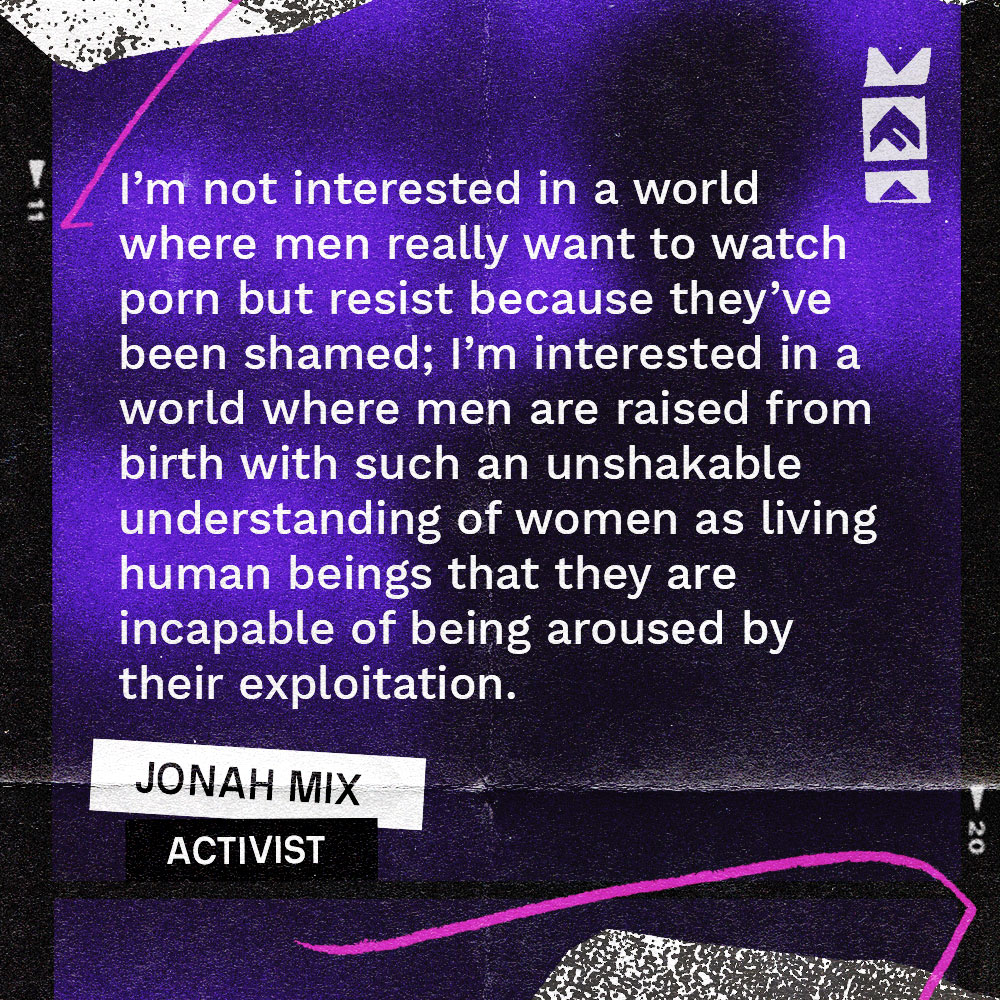Every human is hard-wired to desire real love and connection, whether that’s in a romantic relationship, through friendship, or with family.
Human beings need each other. We need empathy and understanding. And that’s a proven fact.
Recently, an article from The New York Times showed research that social isolation can cause people to die sooner and lose their cognitive abilities. It can cause problems like higher amounts of stress, lessen the amount of healthy sleep, and even increase in things like heart disease and obesity.
Human connection is key to living healthy, happy lives. And empathy, the ability to understand and share someone else’s feelings in life, is the key to deep human connection.
Empathy and objectification are incompatible
Brene Brown writes that “empathy is feeling with people.” It’s getting on someone’s level and connecting with something within yourself so you can connect with someone else. This is something that is completely lacking in porn. And, in fact, porn can diminish a consumer’s ability to empathize and the ability to love deeply.
Sam Carr, a lecturer in education and psychology at the University of Bath, recently wrote for The Conversation on how pornography wrecks our ability to empathize, fostering harassment and abuse.
Carr explains that, in a society that is trying to figure out the next steps to make the world a better place after the #MeToo movement and the scandals with Weinstein and Cosby and so many other harassers and abusers, maybe we should challenge the status quo and look into what is fueling toxic ideas in society.
Related: Can You Tell The Difference Between #MeToo Stories And Porn Plot Lines?
Can we really create a safe space where people are respected and harassment can easily be reported when sexual objectification is still a pretty significant part of our culture? After all, psychologists have found that porn negatively affects the way consumers see other people.
Carr’s point is pretty simple. Objects don’t have feelings. Objects are owned by people. If we turn people into objects, we no longer see them as having feelings and can’t empathize with them. But objectifying doesn’t just make people into objects; it also suggests ownership.
“In short, empathy and sexual objectification are incompatible,” wrote Carr. “Under a sexually objectifying gaze, women’s bodies momentarily become the ‘property’ of the observer—whether they have consented or not.”
Concerning porn scripts
A recent report discussed the different “scripts” of pornography and how they can affect the partner of a porn consumer. A “script” is basically a pattern of behavior someone defaults to follow in a certain setting, like being quiet in a public library or being loud at a football game.
This report found that the scripts of pornography lead to a few concerning things. One is that they reinforced traditional, unrealistic beauty standards rather than embracing natural beauty and body positivity. Porn behaviors also teach incorrect ideas about sex: that everyone always wants sex, that people are sexually insatiable, and that constant sexual novelty outside of a steady romantic relationship is the ideal.
Within porn, there is a lot of mechanical sex and not a lot of love, affection, and empathy. There isn’t much intimacy displayed, like cuddling, kissing or hand-holding. In fact, today’s porn is all about creating fake intimacy without the needed emotional connection that can come with real-life sexual intimacy. But the problem is, porn is a powerful teacher. Love and empathy are not featured parts of porn, and since porn is often the go-to for our generation to learn about sex and relationships, seeing that lack of demonstrated empathy over and over can fuel unhealthy ways of thinking and affect consumers’ relationships with their partners.
Related: Is There A Connection Between Porn Culture And Rape Culture?
The same researcher did a series of analyses of the 50 bestselling adult films and found that most of them lacked any empathetic concern for women and a lot of objectification. Almost half of the scenes in the films involved verbal aggression, over 88% of them involved physical aggression.
But more than that, pay attention to this part: most of the violence was done by men against women and the female performers responded with pleasure or neutrality—but it’s not just about women. Male abuse porn, available on any mainstream porn site, also shows that violence and objectification. Clearly, this is everyone’s issue.
Pointing out the problem
Porn is popular and mainstream, but it’s also full of lies and toxic ideas. So is it any wonder that these attitudes of aggression, objectification, and lack of empathy are very much a problem in our porn-obsessed society?
Partners deserve love and empathy. Everyone deserves love and empathy. Healthy relationships thrive when empathy is part of the picture. If you’re invested in sharing real love with a partner, consider ditching the porn and stick to reality. Watching just isn’t worth risking emotional numbness and lack of empathy.




